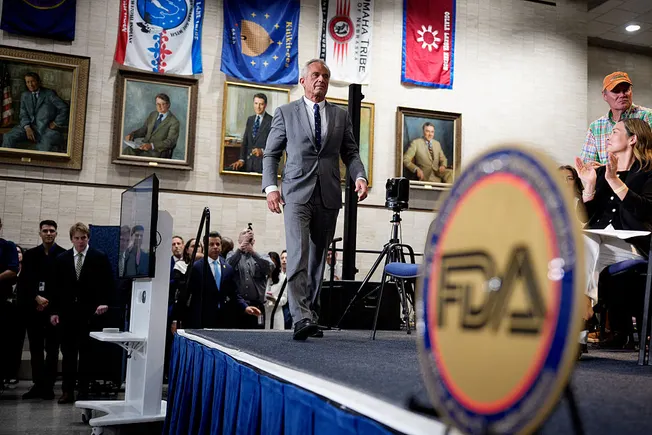In a groundbreaking move, the Food and Drug Administration (FDA) is taking steps to establish a uniform definition of ultra-processed foods, a category that has come under scrutiny for its potential negative impact on public health. This initiative aligns with Health and Human Services Secretary Robert F. Kennedy Jr.’s “Make America Healthy Again” movement, which aims to address the health risks associated with ultra-processed foods.
Collaborating with the Department of Health and Human Services (HHS) and the U.S. Department of Agriculture (USDA), the FDA is reaching out to stakeholders for input and data that will help shape a federally recognized definition of ultra-processed foods. Currently, there is no one-size-fits-all definition for these types of foods in the U.S., making it challenging to regulate them effectively. A clear definition could pave the way for future regulations, potentially impacting school lunch programs and food assistance benefit programs.
Ultra-processed foods, such as chips, sodas, and packaged bread, have been identified as major contributors to chronic illnesses in the U.S. These products, which often undergo extensive industrial processing and contain additives like artificial flavors and sugars, have been linked to conditions like cardiovascular disease, Type 2 diabetes, and obesity. While these foods may be appealing and convenient, their long-term health implications are concerning.
FDA Commissioner Marty Makary emphasized the importance of establishing a uniform definition for ultra-processed foods, noting the clear and convincing threats they pose to public health. However, it is essential to differentiate between harmful ultra-processed foods and essential, nutritious options that fall under the same category. Former FDA leaders have pointed out that foods like whole grain bread, yogurt, tofu, and infant formula, while technically classified as ultra-processed, play a vital role in a balanced diet.
Defining ultra-processed foods could not only inform future regulations but also advance nutritional research and policy. Despite the prevalence of processed foods in the modern diet, there is a lack of comprehensive studies evaluating their direct impact on health. More research is needed to understand how the combination of ingredients and processing methods influences the nutritional value and health outcomes of these products.
As the FDA works towards establishing a clear definition of ultra-processed foods, the potential implications for public health and regulatory measures are significant. By addressing the challenges posed by these products and promoting a better understanding of their impact, the FDA aims to safeguard the health and well-being of the American population.


